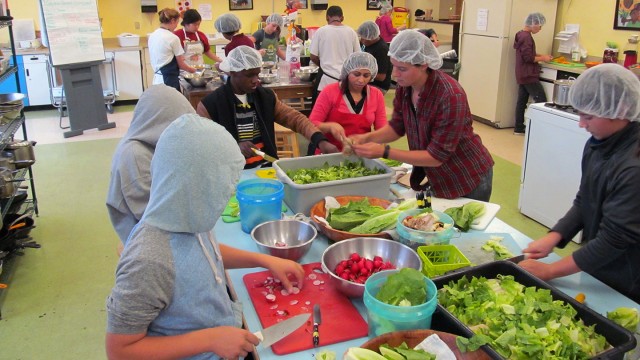
It's not unusual for school programs to be cut -- even successful and popular ones. Often the program disappears into memory. But sometimes school supporters can rally to keep it going. At Willard Middle School in Berkeley, California, parents and the community mobilized to raise money to keep alive a cooking and gardening program at the school after its budget was cut. But the school didn't stop there -- its teachers have tasked students with turning the program into a successful small business, generating revenues to support the program. Students are learning by doing, even when that means making mistakes that cost the program money, all for the purposes of learning.
Two years ago, the Berkeley Unified School District learned that the federal funding stream it used to pay for a nationally recognized cooking and gardening program in its K-12 schools would disappear. With more than a decade to build on lessons learned, the program was adept at teaching nutrition, along with academic concepts like plant botany, cooking math and journal reflections embedded in hands-on learning. Students learned about the vegetables they grew and shared tips on preparation with their parents when they went home. Other classroom teachers even incorporated elements of gardening into their instruction.
One part of the school’s strategy to save the beloved program involves seventh- and eighth-grade entrepreneurs using their elective class to run a small catering business with the big goal of raising $20,000 for the program.
"We're trying to pilot a program where we can generate income during the year,” said Matt Tsang, director of Willard’s cooking and gardening program. To do that, students are growing and making meals and value-added products like jams, pickles and salsas that they sell to the community. "What I told them [the students] is, we don't have a manual for how we're doing this,” Tsang said. “We know our goal and they're part of this process."
Talk about high-stakes learning. The cooking and gardening program at Willard, which spreads far beyond this one entrepreneurship class touching the lives of every student, costs about $120,000 to run. The income generated by students will be only one part of any solution the Willard community comes up with, but Tsang says that despite the difficulty of the task, he couldn’t ask for a more real-world opportunity for his students to learn.


